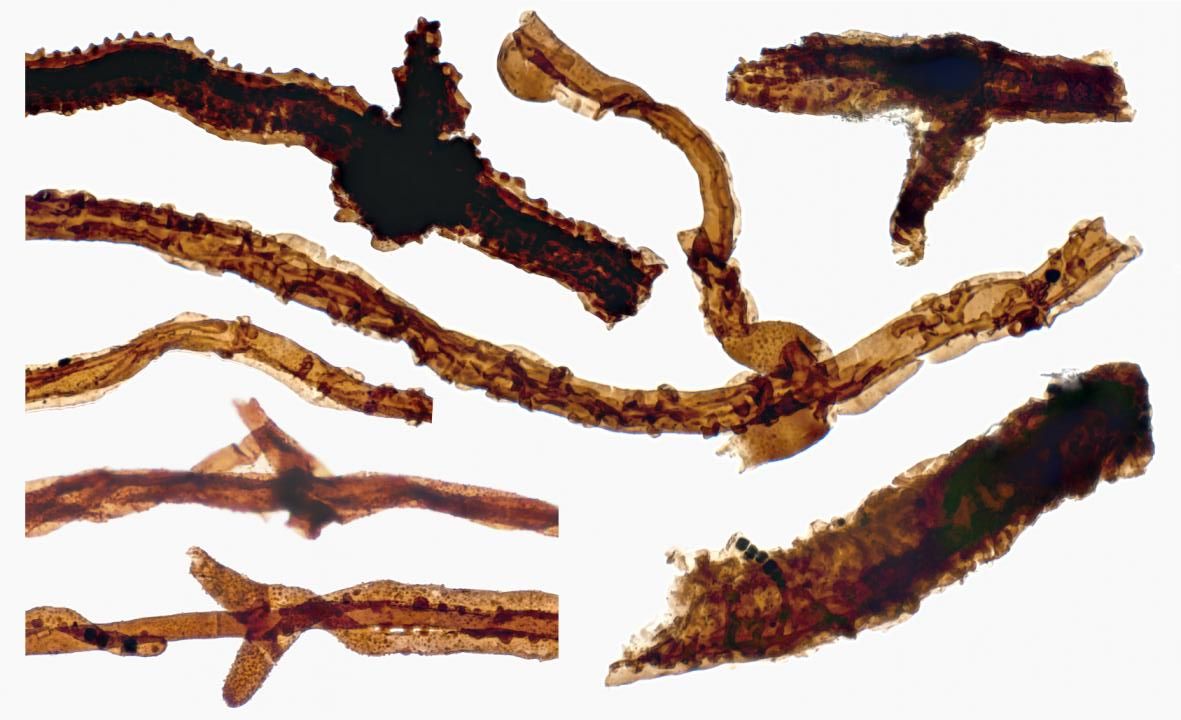
Fungi are as old as the hills. Scientists have identified bits of fossilized fungi that date back 440 million years, making them the oldest known fossils of any land-dwelling organism.
The finding, described in a paper published March 2 in the journal Botanical Journal of the Linnean Society, predates the previous record holder (also a fungi fossil) by more than 20 million years, and is older than any fossilized plant.
Study author Martin Smith, a research at Durham University in the United Kingdom says that plantlike organisms were almost certainly already around at the time of the newly discovered fossil, named Tortotubus. The fungi likely helped to break down rotting organic matter produced by these primitive flora, making it easier for new generations of plants to grow. These fungi were present "just as life is emerging from the oceans…and they helped plants gain a foothold on the land" by stabilizing the soil, and making nutrients available, just as they do now, says Smith, who completed the research while at the University of Cambridge.
"It's probably fair to say that land plants wouldn't or couldn't have evolved without the collaboration of fungi, so it's interesting to see them turning up... around the same time that land plants are first appearing," says Nick Butterfield, a Cambridge scientist who wasn't involved in the study.
The fossil Smith and his team identified are tiny, smaller than the width of a human hair, but formed large mats underground that likely helped keep soil in place.
They likely weren't the first land organisms, however. There is proof of plant-like spores existing for tens of millions of years before this, and indirect evidence of "microbial crusts" occurring more than 100 million years prior, in the Precambrian era, Butterfield says.
Tortotubus formed little filaments similar to those found in modern fungi, which allow the organism to spread throughout the soil to find and decompose rotting material, and transfer food across long distances. Smith says that all modern fungi that behave similarly create mushrooms to spread their spores, and it's likely that Tortotubus also produced such fruiting bodies, although there's no fossil evidence of them to date.
The Tortotubus samples they found likely became fossilized upon becoming covered in siltlike soil, which shielded it from oxygen and allowed it to turn into rock, Smith says.
Uncommon Knowledge
Newsweek is committed to challenging conventional wisdom and finding connections in the search for common ground.
Newsweek is committed to challenging conventional wisdom and finding connections in the search for common ground.
About the writer
Douglas Main is a journalist who lives in New York City and whose writing has appeared in the New York ... Read more
To read how Newsweek uses AI as a newsroom tool, Click here.








